Entrevistão: Surfer Blood
“Carefree Theatre”, quinto trabalho do quarteto americano Surfer Blood é desses discos sem canção ruim. Se você tiver tempo e disposição, pode procurar ao longo das onze faixas do álbum alguma que não tenha uma linha de guitarra memorável, uma boa sacada no arranjo, uma boa melodia. Em vão. Caso raro hoje em dia, este é um trabalho em que não há muito desejo em soar moderno, marrento, dividindo águas. O pessoal do Surfer Blood vem numa onda mais madura, fruto de mais de uma década em atividade, na qual já viram muita coisa acontecer.
Integrantes vieram e se foram, até em circunstâncias trágicas, caso do guitarrista Thomas Fekete, vítima de câncer aos 27 anos de idade, em 2016. John Paul Pitts, o outro guitarrista, vocalista e líder do grupo, seguiu adiante, reimaginando o papel da banda no mundo e em sua vida. “Carefree Theatre” é o resultado deste período mais recente, de maior amadurecimento de forma inevitável.
Enquanto as guitarras fluidas da banda propulsionavam várias lives bacanas feitas durante a pandemia, John Paul Pitts bateu um papo conosco, falando sobre detalhes do álbum, além de fatos da carreira do grupo. No meio do caminho, considerações sobre trump, corrida presidencial nos Estados Unidos e o porquê de não vermos/ouvirmos tantas bandas da Flórida, lar do Surfer Blood.
O que mudou na carreira do Surfer Blood nesses onze anos de existência? Da banda que deu seu primeiro grande passo quando tocou na Inglaterra em 2009 para a banda que hoje dá entrevistas para este site independente do Brasil?
Tem sido uma década louca. Tocamos mais de mil shows e lançamos cinco discos. Tudo foi uma experiência de aprendizado. Quando começamos, aumentávamos o volume de nossos amplificadores ao máximo e tocávamos no volume máximo durante todo o show, mas nos tornamos mais dinâmicos e versáteis com o passar dos anos. Nós tocamos uns contra os outros em nossos shows e incorporamos muitas harmonias em nossos discos.
“Carefree Theatre” é o nome de um local da sua cidade que foi demolido. Quão importante foi para você? Era um local?
Crescendo, foi uma das minhas únicas janelas para o mundo fora da Flórida. As pessoas não percebem o quão longe minha cidade natal está do resto do país. É uma viagem de dez horas apenas para chegar a Atlanta, a próxima grande cidade em turnê. O Carefree Theatre era um dos únicos lugares na minha cidade onde tocavam bandas em turnê nacional. Eu pude ver Henry Rollins lá, eu era um grande fã do Black Flag quando estava no colégio, e vê-lo de perto foi uma experiência incrível. Infelizmente, o teatro fechou alguns anos depois. Simplesmente não havia interesse suficiente na pequena cidade de onde viemos.
O som das músicas do álbum oscila entre lo-fi e uma forma agradável e melodiosa de indie rock. Quais são suas inspirações e influências?
Para este álbum, eu estava atraindo influências de todos os lugares, mas o conceito original foi baseado no álbum do Guided By Voices, Alien Lanes. Todas as músicas têm menos de dois minutos e soam completamente diferentes, mas a coisa toda é coesa. Quando eu estava escrevendo, eu me esforçava para conseguir o máximo de material possível. Normalmente passo muito tempo pensando em como um álbum se encaixa, mas para este eu decidi escrever o máximo possível e descobrir o resto depois.
A boa notícia é que acabamos com um LP e dois EP’s! Eu vejo todos os três lançamentos como um corpo de trabalho e sou grato por termos sido capazes de lançar tanta música durante esses tempos loucos.
Conte-nos como foi a experiência de escrever sobre o tiroteio de Parkland e fazer a música mais linda do álbum, só sobre esse assunto.
Eu tinha acabado de voltar para a Flórida alguns meses antes da tragédia e do MSD. A mudança veio com emoções confusas. Eu estava na academia quando vi a notícia pela primeira vez, era tão perto de casa. Infelizmente, nos Estados Unidos, esse tipo de coisa acontece uma vez por mês e esses eventos tendem a ser esquecidos rapidamente. Nas semanas e meses seguintes, continuei a acompanhar a história e fui profundamente inspirado pelos alunos, sua coragem e paixão. Como eles enfrentaram os adultos na mídia que tentaram desencorajá-los, às vezes zombando deles abertamente.
Não sei se eu teria coragem ou foco para reagir dessa forma quando era jovem. Eu escrevi a música como uma homenagem a eles.
Vocês fizeram várias lives durante a pandemia. Como o “Carefree Theatre” tem se espalhado por meio dessas restrições?
Somos gratos por ter fãs ao redor do mundo que apoiaram o álbum, embora provavelmente não faremos shows em um futuro próximo. As transmissões ao vivo ajudam a preencher o vazio, mas não há nada como tocar na frente de um público ao vivo. Mais do que tudo, eles nos mantêm focados no futuro. Estou muito ansioso para o dia em que possamos voltar a música ao vivo.
Existe alguma razão para não vermos tantas bandas da Flórida em atividade? O estado tem uma cena de rock alternativo ou algo assim?
Há muitas pessoas criativas na Flórida, eu conheço muitas pessoas que estão fazendo músicas incríveis. Dito isto, cai principalmente em ouvidos surdos. Não há mídia nacional aqui para impulsionar bandas locais para os holofotes nacionais. Não há muitos locais para tocar, então os músicos que conheço geralmente acabam tocando para outros músicos. Não tenho certeza se alguém teria ouvido falar do Surfer Blood se não tivéssemos comprado uma van e começado a tocar em qualquer lugar que pudéssemos. No início eram muitos shows vazios, então um dia alguém nos notou e as coisas dispararam!
Você até gravou uma versão de “Summer Trope” com Pip Blom. Como foi essa abordagem?
Tivemos a sorte de fazer uma turnê com Pip em uma de suas primeiras turnês, e mantivemos contato desde então. Eu também estava procurando mudar as coisas com a banda na época. A adição de Mikey e Lindsey abriu novas possibilidades, suas harmonias em nosso último álbum, Snowdonia, tornaram esse álbum novo e excitante para nós. Tive a ideia de fazer versões alternativas de nossas músicas com cantores diferentes, e Pip foi uma das primeiras pessoas que contatei. Sua voz é tão única e interessante. Felizmente, ela disse sim, gravou seus vocais em sua casa na Holanda e os enviou de volta para mim uma semana depois. Gravei todos os instrumentos em torno de sua apresentação e estou muito feliz com os resultados.
É raro ver um disco de rock tão direto e melodioso como “Carefree Theatre” hoje. É quase como se houvesse uma pressão sobre as bandas com essa necessidade imposta de encontrar sons experimentais, eletrônicos, psicodélicos…
Surfer Blood sempre foi uma banda pop em primeiro lugar, mas não temos medo de arriscar. Embora o Carefree Theatre tenha seu quinhão de pop direto, há muitas músicas que exploram um novo terreno sônico. “Summer Trope” e “Dewar” são experimentais e diferentes do resto do nosso catálogo, e têm muitos momentos psicodélicos. Essa é a parte divertida da gravação, transformar uma progressão de acordes e melodia em algo mais ousado e sofisticado, mas a música sempre vem primeiro.
A banda já passou por mudanças de formação, inclusive por motivos trágicos. Como essa experiência de perda deu à Surfer Blood a experiência e como isso influenciou a composição desse novo trabalho?
Não consigo colocar em palavras o quão grande foi a influência de Thomas sobre mim. Ele tinha tanta paixão e seu estilo era único. Ele me apresentou à maioria das minhas músicas favoritas. Ainda penso nele toda vez que me sento para escrever uma música, e o pensamento dele me faz empurrar a mim mesma e a todos com mais força. Ele nunca desistiu.
Como vocês estão lidando com a corrida presidencial? Vocês participam de alguma campanha?
Aqui nos Estados Unidos, é difícil não deixar a eleição se tornar exaustiva. Estou muito preocupada com o futuro do meu país e sei que a escolha que fizermos em novembro terá repercussões em todo o mundo. Donald Trump não é apenas constrangedor, ele é perigoso. Estou fazendo tudo que posso para apoiar os democratas, inclusive doando o pouco dinheiro que posso pagar para suas campanhas. Cada vez que me sinto exausto, lembro que essa é toda a estratégia deles. Temos que permanecer vigilantes.
Se você pudesse convidar alguém para colaborar em um disco ou música, quem você escolheria e por quê?
David Bowie. Ele colocou seu coração e alma em cada colaboração que fez. John Lennon, Iggy Pop, Klaus Nomi. Não fazia ideia que ele produzia tantas canções famosas! Claro que nada disso é possível agora, mas eu adoraria a chance de passar alguns dias no estúdio com ele.
“Carefree Theater”, fifth work of the American quartet Surfer Blood is one of these records without a bad song.
If you have the time and disposition, you can search through the eleven tracks on the album for one that does not have a memorable guitar line, a good catch in the arrangement, a good melody. I will be in vain.
Rare case nowadays, this is a album in which there is not much desire to sound modern, dividing waters. The guys of Surfer Blood comes in a more mature wave, the result of more than a decade in activity, in which they have seen a lot happen. Members lost and left, even in tragic circumstances, the case of guitarist Thomas Fekete, a cancer victim at 27 years old, in 2016.
John Paul Pitts, the other guitarist, vocalist and leader of the group, went ahead, reimagining the role of the band in the world and in his life. “Carefree Theater” is the result of this most recent, inevitably more mature period.
While the band’s fluid guitars propelled several cool lives done during the covid-19 pandemic, John Paul Pitts chatted with us, talking about details of the album, as well as facts about the group’s career, considerations about the trump presidency and will to be reelect, presidential race in the United States and why we don’t see / hear so many bands from Florida, home of Surfer Blood.
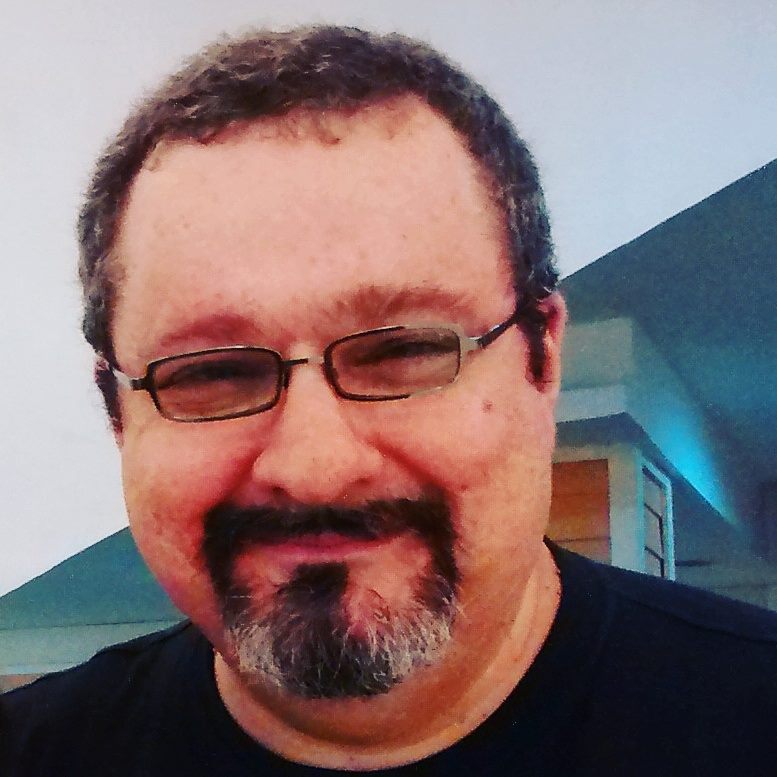
Carlos Eduardo Lima (CEL) é doutorando em História Social, jornalista especializado em cultura pop e editor-chefe da Célula Pop. Como crítico musical há mais de 20 anos, já trabalhou para o site Monkeybuzz e as revistas Rolling Stone Brasil e Rock Press. Acha que o mundo acabou no início dos anos 90, mas agora sabe que poucos e bons notaram. Ainda acredita que cacetadas da vida são essenciais para a produção da arte.

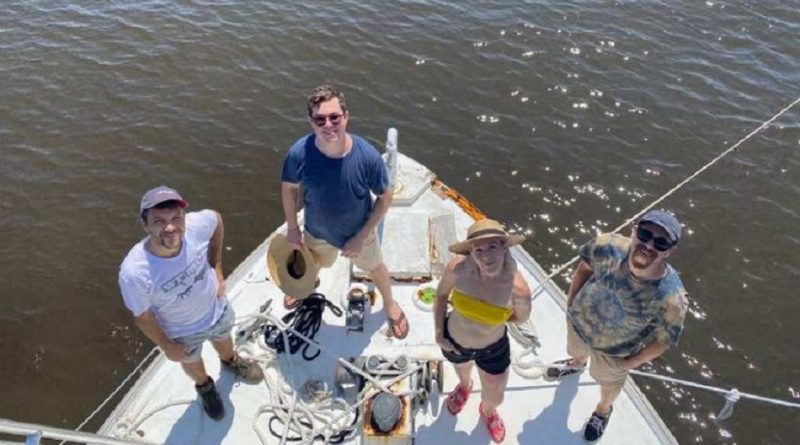
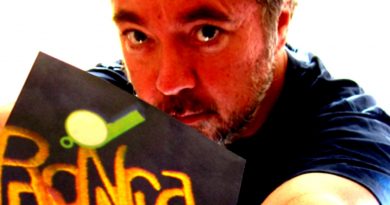
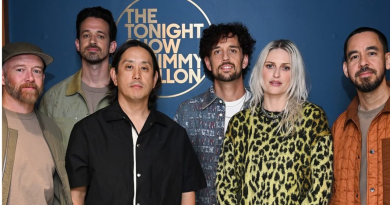
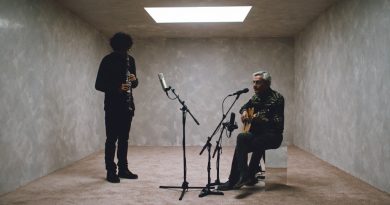
Obrigado, meu caro. O JP Pitts foi ótimo nas respostas.
Ótima entrevista. Muito bom poder ler as respostas de pessoas que admiramos, com perguntas que fogem do óbvio!
Parabéns